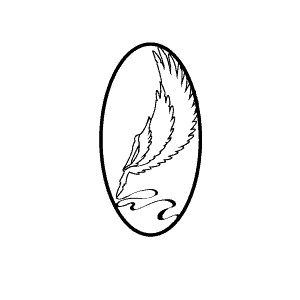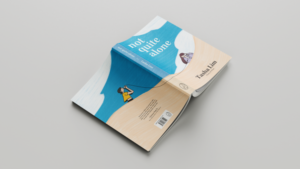What a year 2020 had been! It was a rollercoaster ride, mixed with unexpected events and emotions that none of us could have predicted at the beginning of last year. Everyone should pat themselves on the back for going through the challenges that 2020 had thrown at us. Unfortunately, hard battles don’t end easily and we are still going through a tough time this year.
Nonetheless, every day provides you fresh chances to improve yourself physically and emotionally. Now that 2021 has come upon us, (or 2020 2.0, depending on how you look at it) it’s safe to say that it is important to keep what’s left of the strength and momentum we had from last year.
So, we have curated our top 5 books that range from fiction to nonfiction to aid you in maintaining a healthy mind and perspective during this period. We hope these books will help you find inspiration to improve yourself as an individual as well as to treat the people around you better because we don’t know the hidden battles everyone is facing. The key to personal happiness is to not only be happy by yourself but to spread that bliss to others!
Mark Manson’s The Subtle Art of Not Giving A F*ck

Mark Manson’s self-help book teaches everything that you need to know about strengthening your well-being internally: how to not give a f*ck. This American author emphasizes that staying positive all the time is not the way to become healthier people. We have to face the fact that life is not going to be a bed of roses all the time and that human beings are flawed. Many people give too many f*cks to things that don’t even matter to them. Life is too short for that and Manson, backed up with academic research and humor, tells us we should only give a damn to those that hold meaning to our lives.
What did we learn from this book?
1. Failure is inevitable
Failing is a part of life and that is the way for you to learn. Not many can grasp failure if it fell upon them but to live a content and serene life, you have to accept the fact that some days are just not your day. It’s okay to fail but it’s not okay if you quit completely! Manson uses the example of a young child trying to learn how to walk and falling hundreds of times before finally getting the hang of it. If the child just thinks to himself that walking isn’t for him, then he’ll never be able to walk properly.
2. Pick a worthy battle and invest energy wisely
At times, when there’s too much on your plate, you need to choose which one deserves the headache you’re going through. Not all battles deserve your full attention and why waste your extra energy on petty things when you could invest that energy towards something more meaningful?
3. Be grateful for what you have
In this day and age where social media is practically inseparable from our daily lives, it can be difficult to ignore nasty comments and see other people having better lives than us. We are reminded of our flaws, burdens, and fears which mold the dark shadow of insecurity that devours us. But, sometimes we forget to appreciate the things we currently have and worked hard for. Manson suggests that constant pursuing only reinforces the feeling of inadequacy. Once in a while, it’s important to stay put and be content and grateful for what you have.
Dale Carnegie’s How to Win Friends and Influence People

One of the most timeless bestsellers since 1936, Dale Carnegie’s self-help book has been a must-read for people from various working industries, especially in the business sector, and is one of the most influential books in American history. A former salesperson, Carnegie ended that career and began a new career as a teacher of public speaking.
His successful career as a spokesperson prompted him to write this successful debut book to expand his audience. His pieces of advice have countlessly helped people to climb the ladder of success in their businesses and even in their personal lives. If you’re looking for rock-solid advice that has proved to help people for decades, you should definitely pick up this book because it will change your perspectives and social skills for the better!
What did we learn from this book?
1. Don’t judge or condemn a person
This book is filled with useful advice to help you to “win friends and influence people.” One of the ways to do this is to not criticize or complain about others. Everyone has their own problems and this sometimes could affect how they perform at work or school. Be a better person by being understanding and forgiving. If you were in their shoes, you wouldn’t want someone to condemn you for performing poorly if you’ve tried very hard to your best.
2. Smile more & be appreciative
Putting on a sincere smile is a key step to becoming more compassionate and appreciative to others. The world would be a more pleasant place if you’re nicer to people and appreciate their existence and effort. When you start showing true appreciation, you are not only refining your own qualities but you are spreading positivity to others!
3. Genuinely care about others
To have influence, you have to invest in the lives of others so that they would in turn, invest their lives in you. It’s a give and take. Dale Carnegie emphasizes the importance of being genuine with your comments, feedback, and conversations with others. The people around you will realize that you have added value and positivity into their lives and therefore, would want you to stick around more. Trust is earned genuinely and slowly. Don’t be a bootlicker! It never works.
Antoine de Saint-Exupéry’s The Little Prince

You might be a bit perplexed to find this children’s fable in the list but French aviator and writer, Antoine de Saint-Exupéry portrays meaningful messages in his story about life through the young prince’s life. If you had read this novella as a child, you might just understand that adulthood is boring and stricken with rules but the narrative is filled with lessons to prep children about adulthood and to teach grown-ups how to be better in adulthood.
The story is about the narrator, who is a stranded pilot on the Sahara desert and meets an unexpected person, the little prince. As the story progresses and we go through the little prince’s journey, we gain more understanding about friendship, love, and reminds us of the innocence we once had as children. This timeless tale has been applauded for decades for its significant themes. This book is a good reminder to us when life knocks us down especially during the challenges of adulthood. All of us were children once and Saint-Exupèry puts it out there that we need to try to be better adults.
What did we learn from the book?
1. Good friendships are important
One of the lessons from this fable that will help in your self-care journey is the importance of friendship. Having helpful and positive friends is a valuable asset to anyone in this world. Good and healthy relationships make life worth living as explained by the fox to the little prince in the lonesome desert. As the fox says to the prince, “If you were to tame me, my whole life would be so much more fun.”
2. Every cloud has its silver lining
Secondly, even for a young child like the prince, he believes that there is always a silver lining behind every dark cloud. When he and the stranded pilot were searching for a well in the desert, the exhausted pilot seemed doubtful that they would find any but the prince said, “What makes the desert beautiful is that somewhere it hides a well…” A few moments later, they found the well and quenched their thirst heartedly. Sometimes life might seem pointless and it is as if there is no light at the end of the tunnel but you must remind yourself that every adversity has its own blessing. Life is just funny that way.
3. Never let imagination die inside of you
While the little prince travels the many planets before landing on Earth, he encounters various types of adults who are all occupied with their jobs. They do not entertain his “childish” questions and give matter-of-fact answers only which makes them boring. The adults in this story represent the mundane world that adults work in and they do not have the time to think creatively.
As working adults, we tend to forget that we deserve to have some fun and ignite the imagination we had as children. Growing old does not equate to just a monotonous life of work and taxes. As part of self-care, you should let yourself enjoy life and be more creative and inquisitive about your surroundings. One of the keys to happiness is to understand and let yourself taste the joys life has to offer.
Trevor Noah’s Born A Crime

South African comedian and television host, Trevor Noah underscores life as a biracial child in South Africa under apartheid and the challenges life had to offer in a post-apartheid era. He does not water down the true stories told in his book about the cruelty of racism and discrimination because he wants his audience to realize the severity that comes with those two negative institutions.
Confined by the absurdities of apartheid, little Noah couldn’t walk be seen openly with his white father or his black mother because of his light skin. He also had to equip himself by learning several languages to survive in his community. As mentioned in his book, Noah is like a chameleon, having known how to switch different languages to speak to various people in his community. However, knowing English has helped him to climb the social ladder. He says, “English comprehension is equated with intelligence.”
Born a Crime is an autobiographical story about a young boy who grew up struggling to find himself in a world where he was the product of a criminal act. It is also a story about a mischievous boy’s relationship with a religious and rebellious mother who is determined to save her son from the pain of poverty, violence, and abuse that have been constant threats in her life. The stories are woven together with importance, drama, and most importantly, humor.
What did we learn from this book?
1. Stay true to yourself
Racism still exists in our society. Although our Malayan history didn’t include the brutal segregation of apartheid, we still had our fair share of scarring racial riots such as the May 13 incident in 1969. The damage done by discrimination and prejudice can still be seen through fabricated stereotypes stamped on different races in this country.
This book teaches us that it is challenging to grow up and live in a culturally divided country but we must not let society define who we are. We are our own person irrespective of skin color, faith, or race. Stay true to yourself and be with the people that bring out the best of you.
2. Don’t dwell too much on the past
To add, Noah highlights that his childhood trauma did not stop him from trying new things. He says he was blessed with his mother’s trait which is the ability to forget the pain in life. He reminds readers that if you don’t stop dwelling on your painful past, you could never move forward and break boundaries to improve your life.
Focus on achieving a better life and experiences rather than your pain. It’s okay to spend some time to focus on your pain and cry it out but you need to remind yourself that you need to get up one day and start doing something meaningful for yourself.
Louise Hay & Robert Holden’s Life Loves You: 7 Spiritual Practices to Heal Your Life

Louise Hay, who was an American author known for her best-selling self-help books collaborated with British psychologist, Robert Holden to write this inspiring and life-changing book. This self-help book is compacted with impactful stories and philosophical meditation, exercises, and prayers to help you withstand the obstacles you’re facing in your daily lives.
Hay and Holden provide 7 spiritual practices for their readers to experiment with for them to realize that life is on their side if they choose to put trust and be more open to opportunities. “Knowing that life loves you is the secret to loving yourself and to living a life that you love,” is a memorable quote from the book to remind us to love ourselves first before embarking on a journey to self-care.
What did we learn from this book?
1. Forgive and accept your part
Even amidst the pressure and strains that life has hurled towards you, life is still worth living and it takes courage and an open mind to heal yourself spiritually. One of the 7 spiritual practices mentioned by the two authors is to forgive your past. It is daunting to relive a past that you badly want to forget but only by accepting and releasing what has happened to you will you be able to live in the present and work for a more healing future.
By healing your future, you are visualizing and creating the life you want. Prioritize the well-being of your present and future self and practice self-love. It helps to be forgiving because forgiveness paves the way for you to have a better outlook on life. As Mark Manson says, give f*cks to things that actually matter.
2. Each day is a new opportunity
After accepting your past, the best way to move forward is to start afresh and remind yourself that each day has new opportunities for you. Keep an open mind and you will start seeing interesting things when you learn new things. Surround yourself with people who believe in you and you will realize that what Hay is trying to say is true: life loves you and the universe isn’t a bad place to live in.
Conclusion
Taking care of your mental health is just as important as taking care of your physical body. We hope that these inspiring books will open up a better world for you. Although life is not a bed of roses all the time, remind yourself that you are worth living and that all problems have a solution when you work on them with a calm heart. Also, don’t forget to check up on your loved ones during these trying times! A simple and sincere “How are you?” or “I hope you are doing well!” can brighten up someone’s day because they know that you care.



